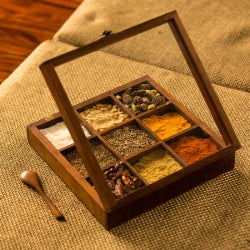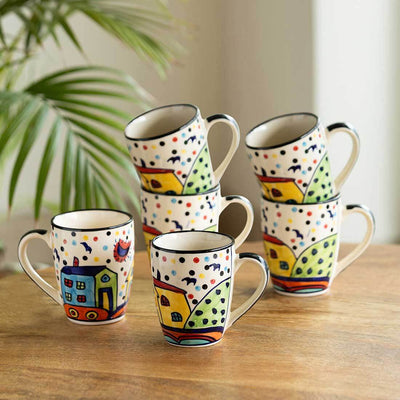All You Need To Know About Diwali
Diwali, or Deepavali, also referred to as the festival of lights, is a grand affair in the Indian subcontinent. But why and how is it celebrated in India and all over the world? Here’s all you need to know about the glorious festival of Diwali:
What is Diwali?
In north India, it is a five-day-long celebration of new beginnings, happiness and well-being. While for people in south India, Diwali is a one-day event filled with enjoyment and glory. Diwali is celebrated during October or November every year. It is celebrated as the beginning of the financial New Year according to the Hindu calendar.
Celebrated on the new moon day or Amavasya and the fifteenth day of Kartika month, often said to be one of the darkest nights of the year.
Symbolising the ascendancy of good over evil, the history behind celebrating this traditional festival is unique. The most accepted notion of why this festival came into being is from Hindu mythology. It is believed that this day marks the return of Lord Rama along with his wife Goddess Sita and brother Lakshmana to his home, Ayodhya, after spending 14 years in exile. To celebrate the victory of Lord Rama over the demon king Ravana, the citizens of Ayodhya illuminated their houses and streets with lights and lamps. This story from the Ramayana mythology is widely believed to be the reason behind celebrating Diwali in the first place. It is also believed that Diwali brings happiness, good health and prosperity to people across the world.
This festival is known to symbolise another victory in Hindu mythology of good over evil. On this day, Lord Krishna’s wife Satyabhama is said to have defeated the demon Narakasura, ruler of Pragjyotishapura. The Demon had brought everyone under his rule and oppressed them mercilessly until people lived in constant fear and agony. So when Satyabhama and Krishna killed the Demon, people cheered and celebrated their victory with great enthusiasm.
For celebrating Diwali, Hindus, Jains, Sikhs, and some Buddhists across the world decorate their homes and light candles, diyas, and lamps. In India, buildings and streets are lit with electric lights, and places of worship are illuminated with Diyas, while many burst firecrackers. . Diwali also brings joy in the form of yummy and delectable sweets. Family members from distant places come together to celebrate this grand festival. Family, friends and neighbours exchange sweet delicacies, like Gulab Jamun, Rasgulla, ladoo, barfi and jalebis among themselves.
On this auspicious occasion, people pray to Goddess Laxmi, the goddess of prosperity, fortune and wealth. It is believed that praying to this goddess spreads prosperity and happiness around the world.

Diwali celebrations in different Indian states
Different Indian states celebrate Diwali for various reasons and on different days. For example, in Himachal Pradesh, Diwali is celebrated a whole month after it has been celebrated in the rest of the world. It is also known as Buddhi Diwali or old Diwali. The curious reason for this is when Lord Rama returned to Ayodhya, the news of his return took a while to reach all the different parts of India. And especially in the northern mountainous regions, the news of his return reached after a long delay.
In West Bengal, people worship Goddess Kali on this day, who is known to be the goddess of strength and power.

The grand celebration
Diwali festivities go on for a period of five to six days. Each day has its significance and meaning. The first day is known as Dhanteras. Dhanteras is derived from two different worlds, “Dhan” meaning wealth, “tera” meaning thirteen, as this is the thirteenth lunar day, falling in the dark fortnight of the Hindu calendar month of Ashwin. People usually buy gold and silver utensils on this day as they symbolise wealth. Goddess Lakshmi, Lord Ganesh and Lord Kuber are worshipped on this day. Houses are cleaned, decorated, and painted around this time, as it symbolizes a fresh start.
The second day, also called Choti Diwali or Naraka Chaturdashi, is celebrated as Lord Krishna, and Satyabhama killed Naraksura. In South India, this day is considered as the only Diwali day and celebrated as such. People burst crackers, light Diyas and make rangoli on this day.
On the third day, people all around the world celebrate the main festival of Diwali. People light up their homes with beautiful lamps and illuminate their surroundings. They burst crackers and exchange Diwali gifts and sweets with their friends, families and neighbours. It is widely believed that Goddess Lakshmi visits clean and radiant households on the night of Diwali and blesses people with wealth and prosperity. Goddess Lakshmi, along with Lord Ganesh and Goddess Saraswati, is worshipped around the world.
On the fourth day, businessmen open new accounts, start new ventures and begin their new financial year.
The final day, Bhai Dooj is celebrated all over the country as a symbol of the strong attachment and deep love between siblings. Though this festival is somewhat identical to Rakhi, the rituals are a little different. Sisters wish and pray for the well-being of their brothers on this day, and brothers shower their sisters with Diwali presents.

Diwali delicacies
Good food and sweets are an essential element of the Festival of Lights. A variety of sweets are prepared by households with almonds, raisins, cashews, pistachio, rose water, syrup, cardamom, saffron water, milk, nuts, etc. Some Diwali delicacies are Halwa, Laddu, Gulab Jamun, barfi, peru and much more.
Apart from the sweets, several savoury dishes like pakodas, gujjiya, aloo tikki, dahi bhalla, vada pav, gol gappa are also prepared.

Safe Diwali tips
Diwali is the Festival of Lights, joy and togetherness. But the bursting of firecrackers during Diwali causes noise and air pollution and harms the animals around them. It is important to stick to the festival’s spirit and bring joy and peace to everyone around, instead of damaging the environment for momentary fun. A few tips to celebrate Diwali in a safe and green way are:
- Avoid bursting firecrackers: firecrackers trigger adverse human health conditions, severe heart disease, lung infection, tuberculosis, etc. Firecrackers are harsh on the lungs as people are exposed to smoke and inhale toxic gases.
- Elderly people must stay indoors: Firecrackers have adverse effects on people of all ages and the elderly, who are more vulnerable. Hence, it is advisable for them to stay indoors.
- Keep fire extinguishers handy: Firecrackers are fire hazards by their very nature, so if you decide to burst crackers, make sure you have fire extinguishers handy in case of emergency.
- Don’t leave children without adult supervision: Diwali is a joyous and exciting festival for kids, but you must be careful as there are possible dangers of fire and errant firecrackers near them. Make sure a responsible adult supervises children while lighting lamps and bursting crackers
So this year, observe these safe practices when you celebrate the beautiful and fun festival of Diwali with your loved ones. One common Diwali tradition across India is buying and wearing new clothes on this auspicious occasion. Exchanging gifts is also a highlight of Diwali, and people go Diwali shopping long before they get together to celebrate this festival.

ExclusiveLane brings you a vast range of the best Diwali gifts for your friends and family that will make your Diwali more memorable and exciting. Diwali gift hampers are an essence of the Festival of Lights. Send unique gifts to your loved ones this Diwali and bring beautiful smiles on their faces. We have a wonderful collection of handmade Diwali gifts to decorate your indoors in the best manner possible. If you are looking for Diwali gifts online, you can choose from a whole range of Diwali gift items on our online shopping site. Shop for Diwali presents and convey your deepest regards to your near and dear ones. Check out our exclusive collection of beautifully crafted spice boxes, candles holder, lamps, and home decor, and make your family and friends feel loved and blessed.






Leave a comment